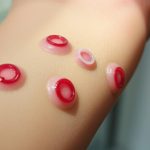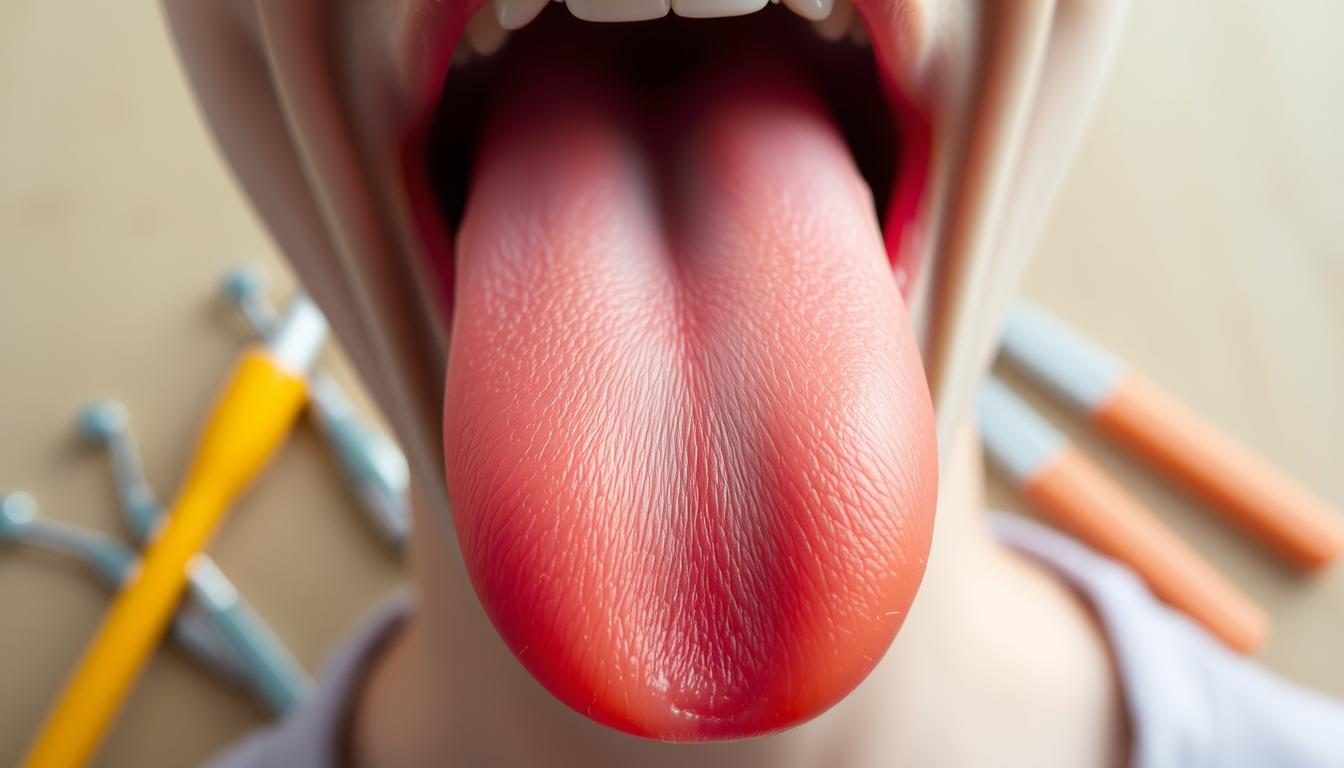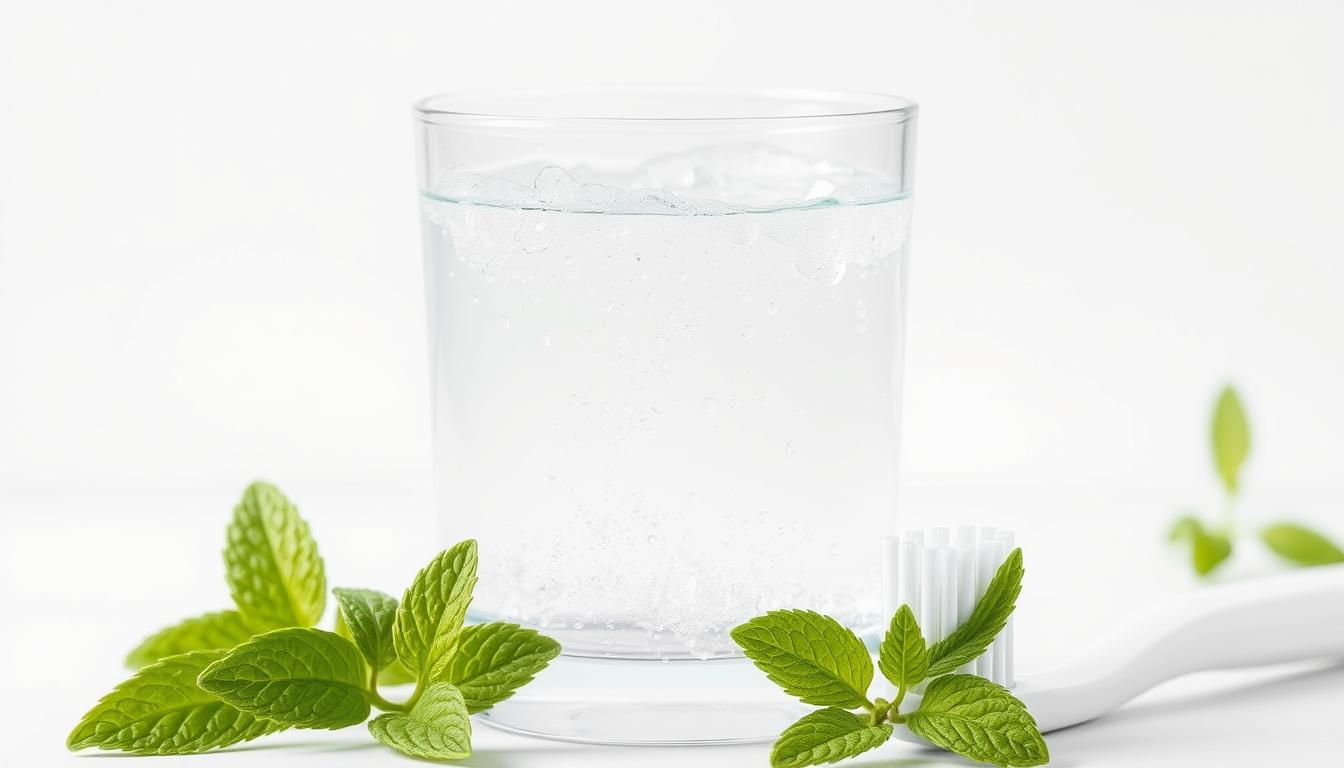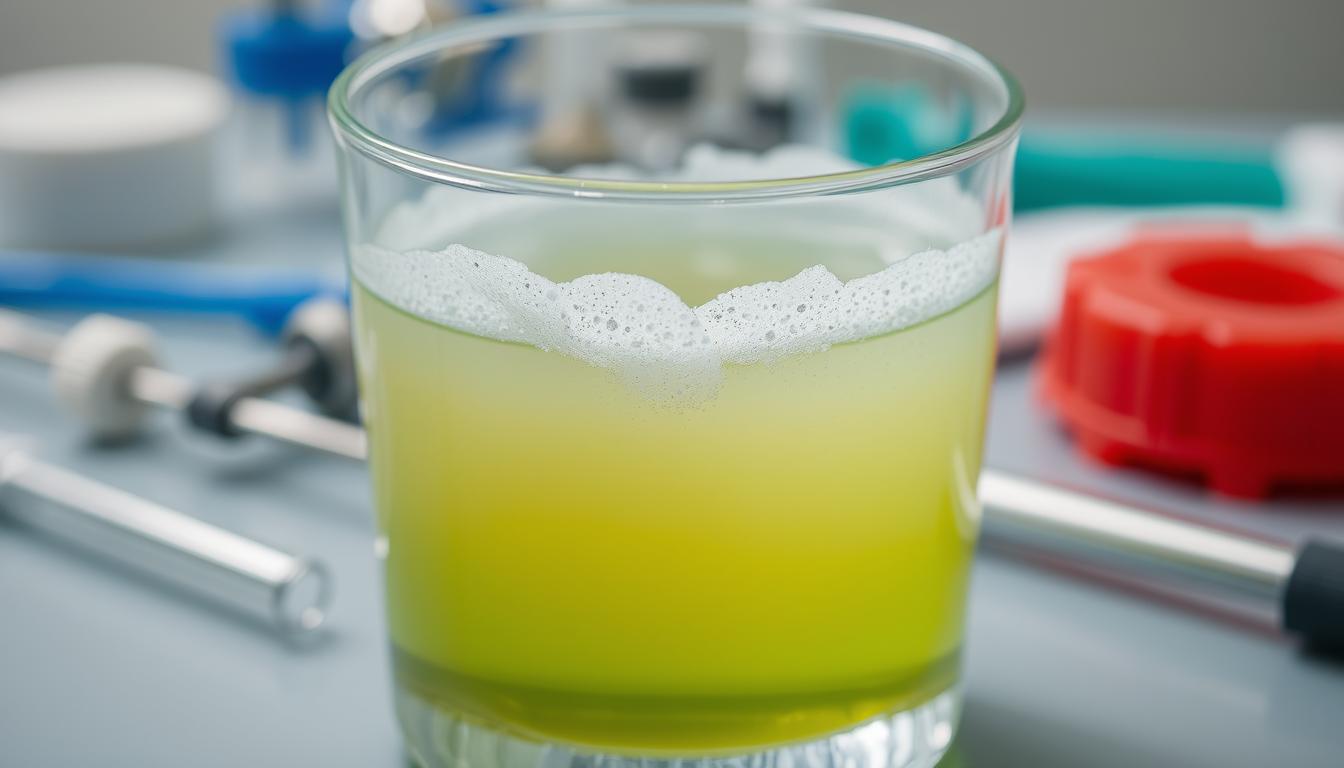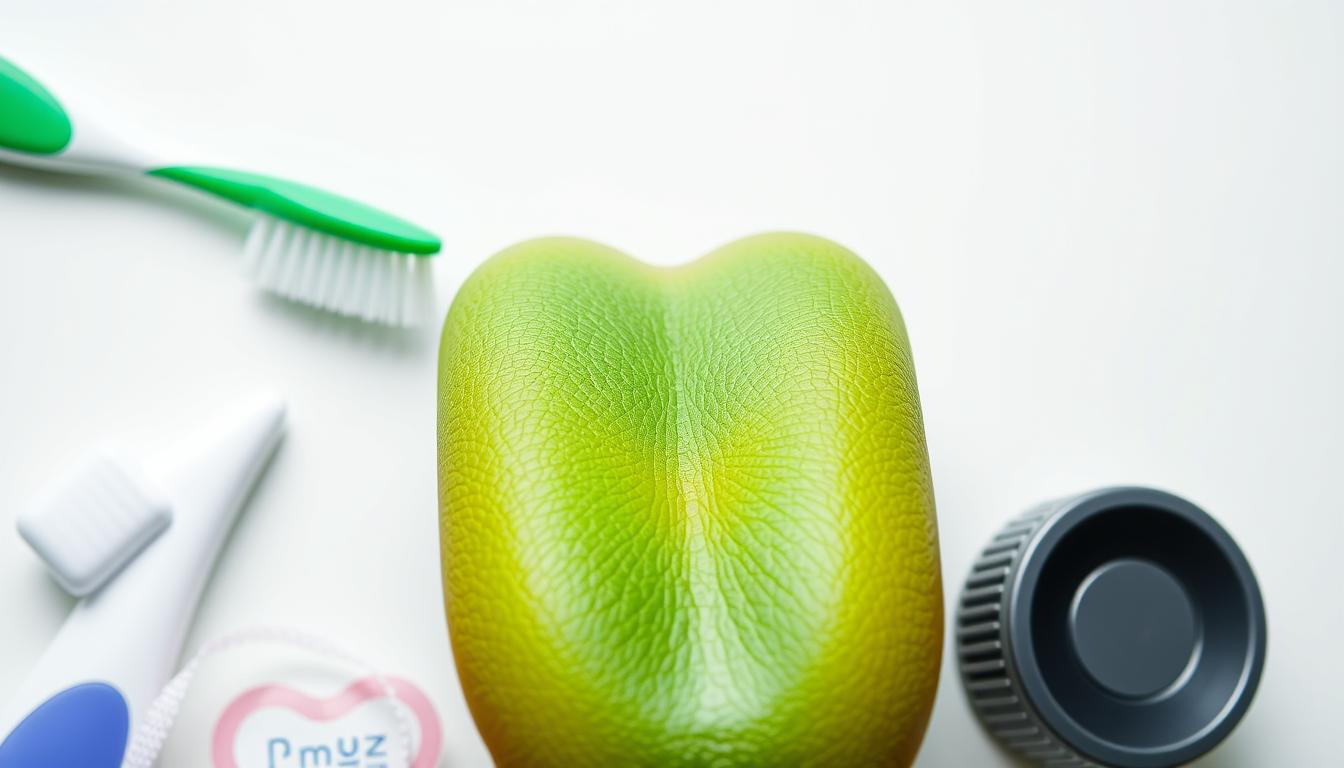Have you ever looked in the mirror and noticed an unusual orange hue to your tongue? While it may seem concerning, an orange tongue is a relatively common occurrence that can be caused by a variety of factors. In this article, we’ll explore the reasons behind this tongue discoloration and provide guidance on when to seek medical attention.
Our tongues can often reflect the overall health of our bodies, and changes in color can be indicative of various underlying conditions or lifestyle habits. By understanding the potential causes and associated symptoms, we can better address any issues and maintain optimal oral hygiene.
Whether you’ve recently noticed a subtle shift in your tongue’s hue or it’s been a persistent issue, it’s important to familiarize yourself with the potential causes and when to seek professional medical advice. Join us as we delve into the world of orange tongue and uncover the answers you’ve been searching for.
Understanding Orange Tongue Discoloration and Its Symptoms
An orange tongue can be a puzzling and concerning condition, but it’s essential to understand the underlying causes and associated symptoms. The appearance of an orange tongue can range from a subtle tint to a vibrant, almost neon-like hue. This discoloration is often linked to various factors, including dietary habits, oral hygiene, and underlying health conditions.
Physical Appearance and Associated Signs
When the tongue appears orange, it may be accompanied by a rough, dry, or papillary texture. The discoloration can be uniform across the entire tongue or concentrated in specific areas. In some cases, the orange hue may be more prominent on the back or sides of the tongue. It’s important to note that natural variations in tongue color, such as a slightly yellow or pink tint, are usually not a cause for concern.
When to Be Concerned About an Orange Tongue
- If the orange discoloration is accompanied by pain, swelling, or difficulty swallowing, it’s essential to seek medical attention as these could be signs of a more serious underlying condition.
- Persistent or worsening orange tongue discoloration that doesn’t improve with changes in diet or oral hygiene may also warrant a visit to your healthcare provider.
Common Accompanying Symptoms
In addition to the orange tongue appearance, some individuals may experience other symptoms, such as:
- Dry mouth or excessive thirst
- Altered taste perception or loss of taste
- Halitosis (bad breath)
- Oral discomfort or sensitivity
Recognizing these accompanying symptoms can help identify the underlying cause and guide the appropriate treatment approach.
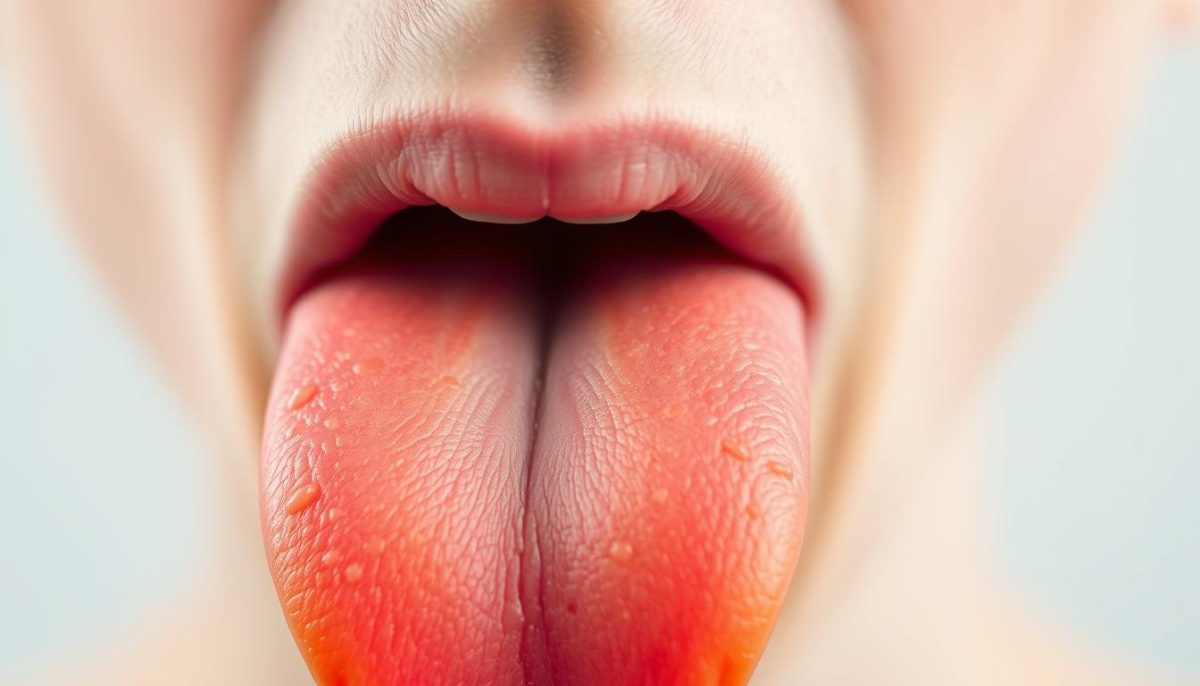
“An orange tongue can be a sign of various health conditions, so it’s important to pay attention to any changes in your oral health and seek medical advice if necessary.”
Why is My Tongue Orange? Medical and Lifestyle Factors
From dietary choices to underlying health conditions, there can be various reasons behind an orange-colored tongue. Understanding the potential causes is the first step in addressing this discoloration and restoring your oral health.
Dietary Factors
The foods and beverages we consume can significantly impact the appearance of our tongue. Consuming large amounts of carotenoid-rich foods, such as carrots, sweet potatoes, or citrus fruits, can temporarily turn the tongue an orange hue. Certain spices, like turmeric, can also contribute to this discoloration.
Medication Side Effects
Certain medications, including antibiotics, antidepressants, and antifungal drugs, can sometimes cause the tongue to appear orange. This is often a harmless side effect that resolves once the medication is discontinued or the dosage is adjusted.
Medical Conditions
- Vitamin A or carotenoid deficiency: A lack of these essential nutrients can lead to an orange-coated tongue.
- Oral thrush: This fungal infection can cause the tongue to appear discolored, often with a white or yellow coating.
- Geographic tongue: This condition, characterized by irregular, patchy areas on the tongue, can sometimes appear orange.
In most cases, an orange tongue is not a cause for serious concern. However, if the discoloration persists or is accompanied by other concerning symptoms, it’s best to consult a healthcare professional for a proper diagnosis and treatment plan.
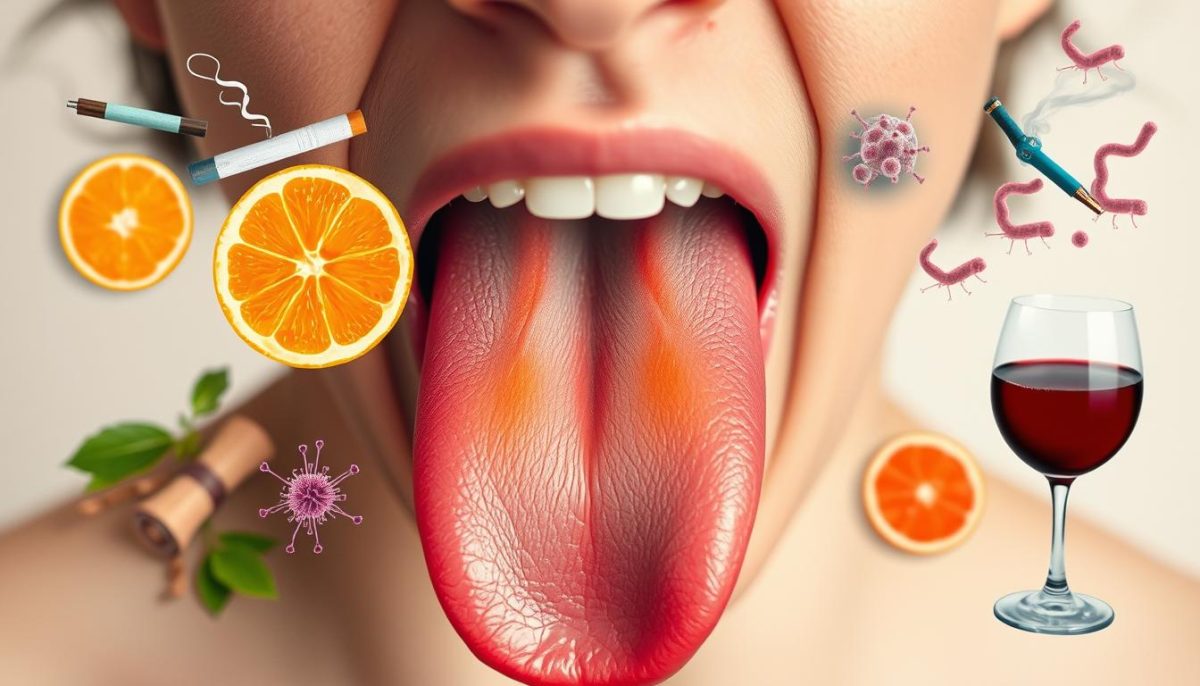
“Maintaining good oral hygiene and being mindful of the foods and medications that can impact tongue color can help prevent and address orange tongue discoloration.”
Natural Remedies and Prevention Methods for Orange Tongue
We understand the concern over an orange tongue, and we’re here to provide you with natural solutions and effective prevention methods. One of the most important steps is maintaining proper oral hygiene. Regular tongue cleaning with a soft-bristled toothbrush or a tongue scraper can help remove any buildup or discoloration.
Additionally, adjusting your diet can make a significant difference. Incorporating more fiber-rich fruits and vegetables, such as carrots, sweet potatoes, and leafy greens, can help restore your tongue’s natural color. Limiting your intake of strongly pigmented foods, like turmeric or food coloring, can also prevent further discoloration.
Staying hydrated by drinking plenty of water is another crucial factor in maintaining a healthy tongue. Proper hydration helps flush out any excess pigments or bacteria that could contribute to an orange tinge. Furthermore, regular visits to your dentist can ensure that any underlying dental issues are addressed and that your oral health is on track.






